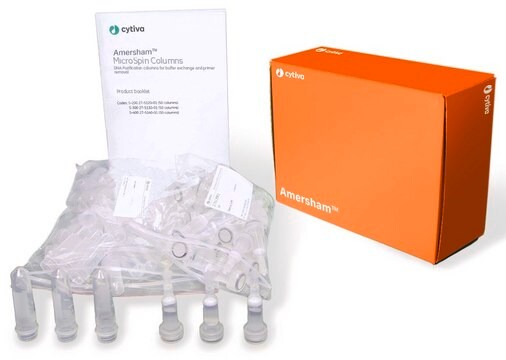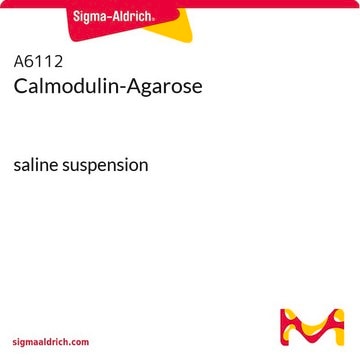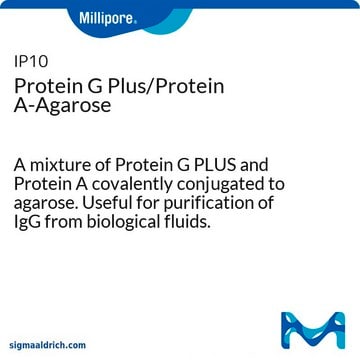Recommended Products
form
saline suspension
Quality Level
extent of labeling
7-15 mg per mL
technique(s)
affinity chromatography: suitable
matrix
Fast flow highly cross-linked 4% beaded agarose
matrix spacer
6 carbon
storage temp.
2-8°C
Application
Ubiquitin-agarose is used in affinity chromatography, protein chromatography, intracellular protein degradation, calpain and lysosomal proteases, proteomics, specialty resins and ubiquitination analysis. Ubiquitin-agarose has been used in a study to produce evidence for a particulate location of ubiquitin conjugates and ubiquitin-conjugating enzymes in the rabbit brain. Ubiquitin-agarose has also been used to study fertilization of the ascidian, Halocynthia roretzi.
Physical form
Suspension in 1 M NaCl containing 15 Mm Sodium azide.
Storage Class Code
10 - Combustible liquids
WGK
WGK 3
Flash Point(F)
Not applicable
Flash Point(C)
Not applicable
Personal Protective Equipment
dust mask type N95 (US), Eyeshields, Gloves
Certificates of Analysis (COA)
Search for Certificates of Analysis (COA) by entering the products Lot/Batch Number. Lot and Batch Numbers can be found on a product’s label following the words ‘Lot’ or ‘Batch’.
Already Own This Product?
Find documentation for the products that you have recently purchased in the Document Library.
Anjali Joshi et al.
Traffic (Copenhagen, Denmark), 9(11), 1972-1983 (2008-09-27)
Retroviral Gag polyprotein precursors are both necessary and sufficient for the assembly and release of virus-like particles (VLPs) from infected cells. It is well established that small Gag-encoded motifs, known as late domains, promote particle release by interacting with components
M Majetschak et al.
European journal of biochemistry, 255(2), 482-491 (1998-08-26)
Ubiquitin is often implicated as a specific tag for protein degradation via the ubiquitin system although only a limited number of physiological proteins have been shown to be degraded in their native tissues via this pathway in vivo. Ubiquitin may
A Ciechanover et al.
The Journal of biological chemistry, 257(5), 2537-2542 (1982-03-10)
We have previously described an enzyme that activates ubiquitin, the heat-stable polypeptide of the ATP-dependent proteolytic system from reticulocytes (Ciechanover, A., Heller, H., Katz-Etzion, R., and Hershko, A. (1981) Proc. Natl. Acad. Sci. U. S. A. 78, 761-765). It carries
Thomas Slagsvold et al.
The Journal of biological chemistry, 280(20), 19600-19606 (2005-03-10)
Ubiquitination serves as a key sorting signal in the lysosomal degradation of endocytosed receptors through the ability of ubiquitinated membrane proteins to be recognized and sorted by ubiquitin-binding proteins along the endocytic route. The ESCRT-II complex in yeast contains one
Kristi G Bache et al.
The Journal of biological chemistry, 278(14), 12513-12521 (2003-01-29)
STAM1 and STAM2, which have been identified as regulators of receptor signaling and trafficking, interact directly with Hrs, which mediates the endocytic sorting of ubiquitinated membrane proteins. The STAM proteins interact with the same coiled-coil domain that is involved in
Our team of scientists has experience in all areas of research including Life Science, Material Science, Chemical Synthesis, Chromatography, Analytical and many others.
Contact Technical Service








